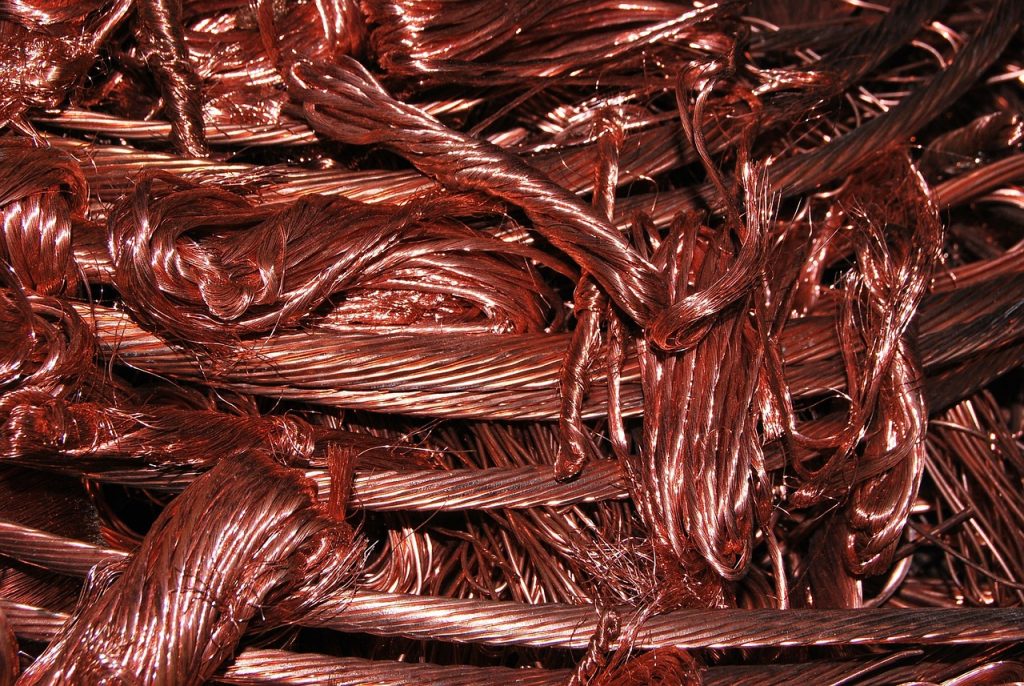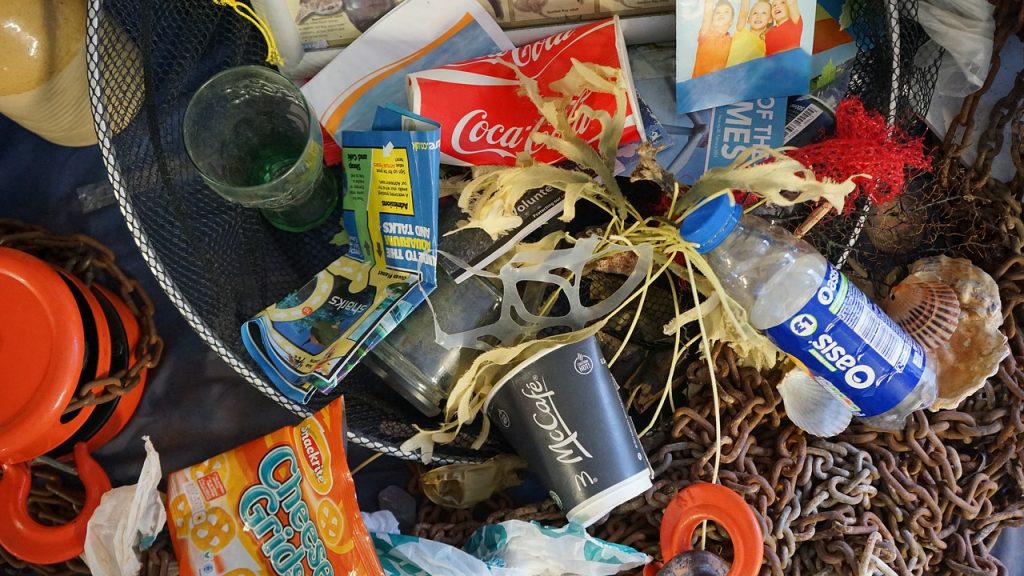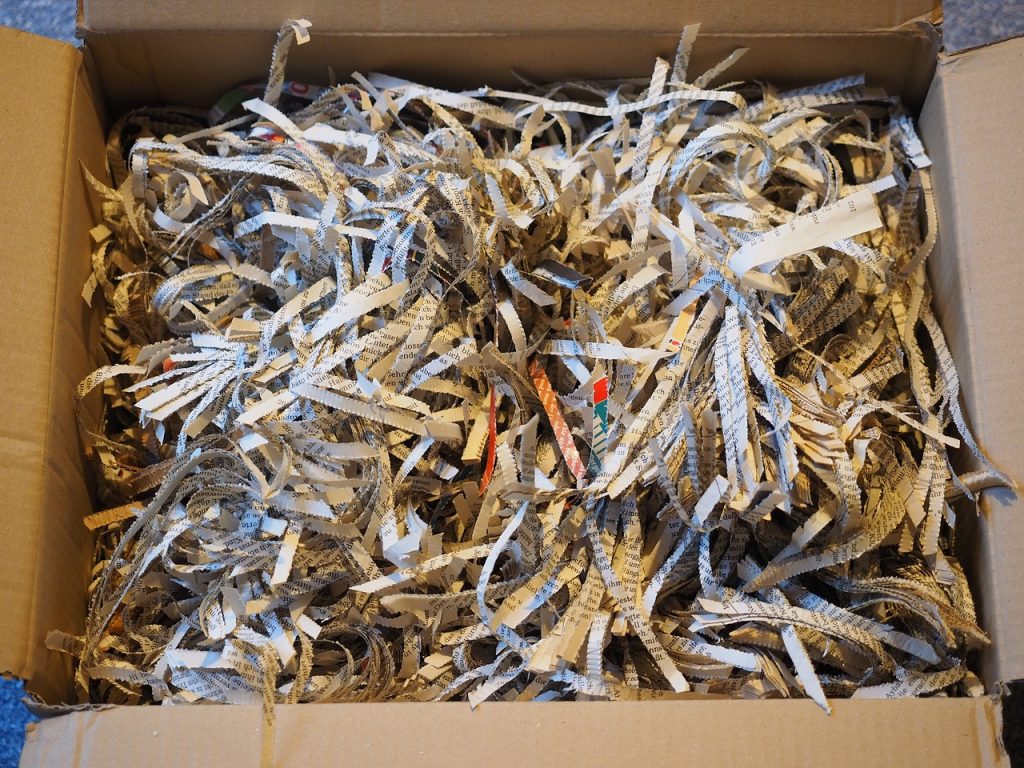- Gather all the copper wire you have.
- Sort the copper wires, separating sheathed from unsheathed.
- Strip the plastic cover off the wires, either manually or using a wire stripping machine.
- Take the stripped copper wire to a specialized recycling center.
- Sell the copper wire based on its market value.
- Recycling centers process and recycle the copper wires.
- Recycled copper is then used in various industries, reducing the need for new copper mining.
Why Recycle Copper Wire? Understanding the Demand for Scrap Copper
Why would anyone recycle copper wire? The answer’s simple: we’ve noticed a growing demand for scrap copper. The primary cause of this rise in copper demand is its excellent conductivity, making it crucial in the electrical industry. Copper wire and copper wire scrap generated from all over the world are in high demand. And with a global supply chain that’s increasingly being strained, it’s no surprise that most developed countries desperately seek to recycle their scrap copper wire.
The process to recycle copper isn’t that complicated. When you recycle copper wire, you play a crucial role in reducing environmental harm, sourcing raw materials reasonably, and supporting a sustainable supply chain. But what’s even more fascinating is just how valuable copper is even as scrap. Copper wire scrap commands a high price in the metal recycling world, due to the copper contained within, making recycling an attractive venture.
So, maybe you’ve got a stash of old copper wire sitting around. Don’t toss it out just yet. The whole copper recycling process ends up being rather profitable. Couple that with the environmental benefits, it’s easy to see why there’s such a high demand for scrap copper.
Scrap Copper Wire: It’s More Than Just Trash
So, you’ve got a pile of scrap copper wire, and you’re considering just chucking it into the trash. Hold up right there! Scrap copper wire – it’s more than just trash. In fact, it’s a valuable and viable source of recycled copper, meaning it could fetch a decent price when sold to the right recycling outfits. Not only does it offer monetary benefits, but recycling copper wire also contributes significantly to environmental preservation.
Understand the demand for scrap copper. In today’s ever-evolving world, copper has maintained its value as it is utilized in a vast array of applications; from construction to electronics, and even in the coinage industry. Copper recycling helps supply this demand while reducing the need for new copper mines, hence lessening our environmental impact.
The process of recycling involves the collection of copper wire scrap, which is then separated, processed, and converted into raw materials for manufacturing industries. Copper wires are considered a preferred recycling material due to their high recovery rate and quality. Through a meticulous and carefully laid-out process, the scrap is repeatedly refurbished, hence offering a sustainable solution to metal waste accumulation.
So, next time you stumble upon copper wires you deem useless, think again. Recycle! Because, remember, when it comes to scrap copper wire; it’s golden – both for those recycling it and for Mother Earth.
Recycling Centers: Where to Sell Scrap Copper?
When it comes to recycling copper wire, you don’t just toss scrap copper into the trash can. It’s a valuable metal that’s in high demand, so why not benefit from it? Many recycling centers offer special services, specifically geared towards the recycling of scrap copper wire, including copper wire scrap. Not all centers offer the same services, thus it’s advisable you check out what’s available near you.
Once you’ve gathered your copper, dropping it off at a center is the next step. This is where services differ. Some recycling centers will sort your scrap metal for you, while others ask you to do it before arrival. Keep your scrap copper wire separate from other scrap metal to avoid any mix-up.
So, where can you sell scrap copper? Typically, recycling centers operate as the intermediary, buying your copper and then selling it to larger recycling outfits or industries. Selling directly to a center means you’ll get a fair price for your Cu, or copper, since prices are often based on the market value of metals. The best part? Recycling isn’t just good for your pocket – it’s also a positive step for the environment.
The Right Way to Recycle Copper Wire
So, what’s the right way to recycle copper wire? First, gathering all the copper wire you have is key. If you’ve been hoarding wires and taking them apart leaving you with a pile of scrap copper wire, that’s a great start. However, the recycling process doesn’t end here. Careful sorting of copper wires is part of the copper recycling process too. Just because wires are copper, doesn’t mean there isn’t a variety to consider.
The copper wire recycling process further involves stripping the plastic cover off the wires. You can either do it manually or use a wire stripping machine, which can be more efficient for large amounts of wire. Afterwards, you’re ready to recycle. Sure, you can do copper wire recycling at home but remember, specialized recycling centers are there to help. They have the equipment to process and recycle copper wires exactly the right way.
Investing in the recycled industry, particularly copper, offers lots of benefits. And let’s not forget, recycling copper, including copper wires, contributes substantially to environmental protection. So, each time you recycle copper wire, remember you’re not only generating money from scrap copper, but also directing efforts towards a sustainable future.
Copper Wire Recycling: Good for the Environment and Your Wallet
Copper wire recycling isn’t just a great method for contributing to sustainability, but it also notably benefits your wallet. Understanding how to recycle copper wire isn’t complicated, and it’s a practice that offers excellent rewards. First, copper wire recycling helps reduce the need to mine new copper. This act goes a long way in conserving resources and reducing the harmful impact of mining on the environment.
With the significant demand for scrap copper, the discarded copper wire is far from being just trash. Recycled copper is hugely sought after in various industries, including producing new wiring. Thus, recycling centers are always willing to buy scrap copper, meaning your discarded copper wires can put some extra cash in your pocket.
If you’re wondering where to sell scrap copper, look for local recycling centers in your area. They’ll happily take the copper off your hands and pay you for it. So, apart from being good for the environment, recycling copper wire can indeed become a profitable venture. As long as you’re doing it right, recycling copper and particularly copper wires can offer benefits for the environment and your budget.
Tray Cable VS Copper Wire: What’s The Difference?
There’s a common confusion when it comes to differentiating between tray cable and copper wire. It can be pretty baffling: what’s the difference? In the wiring world, understanding the varieties of wires is crucial. Tray cable, for instance, is a type of wiring often encapsulated within a protective sheath. It’s used in industrial settings, offering flexibility and resistance against external elements. Copper wire, on the other hand, is a popular wiring option made from copper, favored for its excellent conductive properties.
Most commonly, copper wire is found in the heart of electric motors, appliances, and in the telecommunications sector. The copper is optimal for these settings; it’s highly resistant to corrosion, flexible, and an excellent conductor of electricity. Recycling centers often receive this copper wire as scrap – it isn’t just mere trash, it holds great value!
Understanding the difference between tray cable and copper can help you effectively recycle your scrap copper, benefiting both your wallet and the environment. Using the right process of recycling copper wire helps in preserving copper, a valuable resource. Make no mistake, knowing the difference between tray cable and copper wire plays a significant role in the world of wiring.
Scrap Copper: Why It’s Worth More Than Other Wires
Scrap copper’s worth isn’t a secret. This kind of metal, especially in the form of copper wire, fetches a higher price than other wires. It’s partly because of copper’s conductivity, making it the choice metal for several industries, which demands it endlessly. Copper wires of all kinds, ranging from the typical electrical wire to the tray cable, possess significant worth once they’re deemed ‘scrap’.
Although scrap metal trading may seem intimidating, the process isn’t as complex as it appears. Whether it’s copper wires or other scrap copper, you only need to understand the process to see wealth in waste. So, why does scrap copper fetch more money? One reason is that copper is infinitely recyclable. It doesn’t lose its properties throughout the recycling process, ensuring it retains its quality. This, for recyclers, truly makes copper more than just trash.
You might be surprised to learn how valuable the copper from wires is in terms of scrap metal worth. Recycling centers are more than interested in buying these supplies, and the right way to recycle copper wire turns it into a valuable resource. Copper wire recycling isn’t just environmentally friendly; it’s also a profitable endeavor for your wallet.
Copper Recycling: A Comprehensive Guide to a Fruitful Endeavor
Regardless if you’re a diligent DIYer or a seasoned professional, you’ll know the worth of copper, especially copper wire. It’s more than just mundane wiring. It’s a precious metal, and if you’ve got scraps lying around, you might be sitting on a small fortune. But there’s more to this than just the financial aspect. Copper recycling is a fruitful endeavor that contributes greatly to a sustainable environment.
So, how does one go about this recycling process? Well, it’s not overly complex, but it does require attention to details. Begin by sorting out the copper wire from any unusable material. Copper is highly distinguishable due to its signature reddish-brown color. It’s imperative to separate the sheathed and unsheathed wire, as coatings can lower the overall copper yield.
Once the copper wire is sorted and stripped, it’s time to seek professional services. While you could sell it as is, copper recycling services are equipped with the knowledge and machinery to extract the maximum copper, leading to higher profits. After undergoing an intensive recycling process, the copper is once again ready to be used.
In conclusion, with copper wire recycling, you’re not just saving the environment, but also fattening your wallet. So, it’s definitely worthy of consideration.




